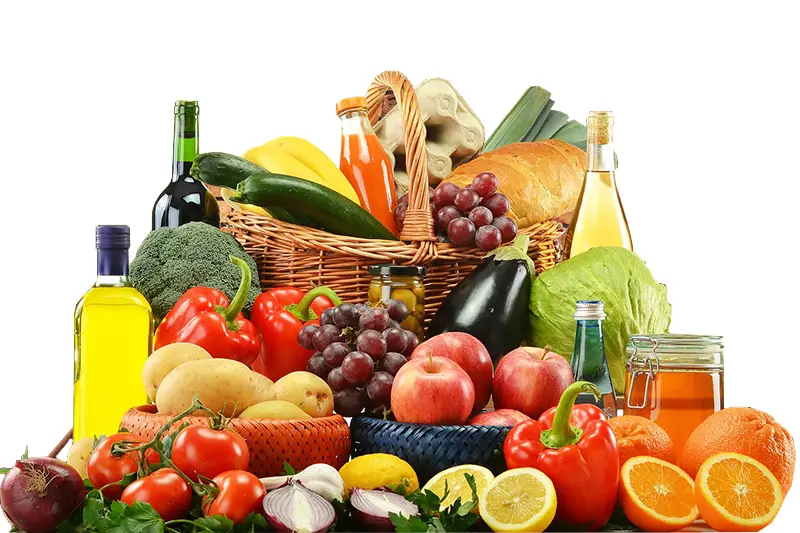Diet and Endometriosis
Introduction:
Endometriosis is a condition that significantly impacts the lives of millions of women worldwide, manifested by the growth of tissue similar to the uterine lining outside the uterus. This condition leads to a variety of painful symptoms, including pelvic pain, particularly painful menstruation, and in some cases, fertility-related complications. Faced with this reality, it becomes crucial to closely examine non-surgical and non-pharmaceutical ways of symptom management. Among these, diet holds a prime position. A carefully adapted diet can offer significant symptom relief, thereby improving the quality of life for those affected. “Diet and Endometriosis” aims to explore how a specific dietary approach can contribute to the management of endometriosis, based on current research and testimonials from women who have experienced it.
What is Endometriosis?
Definition
Endometriosis is characterized by the presence of endometrial tissue outside the uterus, leading to chronic inflammation, adhesions, and ovarian cysts called endometriomas. This phenomenon causes inflammatory reactions in the body, leading to pain and discomfort. The complexity of endometriosis lies in its ability to mimic other medical conditions, making diagnosis a real challenge.
Symptoms and Diagnosis
Symptoms vary greatly from one woman to another, ranging from severe pelvic pain to gastrointestinal symptoms, not to mention fertility issues. The diagnosis of endometriosis is often delayed, due to the normalization of menstrual pain and the variability of symptoms. Laparoscopy remains the gold standard for definitive diagnosis, allowing direct visualization of endometriotic lesions.
The Impact of Diet on Endometriosis
Foods to Avoid
Certain foods can exacerbate endometriosis symptoms by encouraging inflammatory processes in the body. Dairy products, gluten, and red meat are often pointed out for their inflammatory potential. Reducing or eliminating these foods from one’s diet can help alleviate the pains and discomfort associated with endometriosis.
Recommended Foods
Conversely, a diet rich in fruits and vegetables, fatty fish high in omega-3, and whole grains can have beneficial effects. These foods, known for their anti-inflammatory properties, can help reduce systemic inflammation and alleviate endometriosis symptoms.
Practical Tips:
Diet and Endometriosis
Meal Planning
Organizing and planning meals are crucial to ensure that the daily diet includes a variety of beneficial foods while avoiding those that might worsen endometriosis. Meal preparation in advance can also help maintain a balanced diet and avoid last-minute, often less healthy, food choices.
Examples of Beneficial Meals
Incorporate meals made up of leafy vegetables, fiber-rich legumes, whole grains, and sources of lean protein like fish or poultry into your daily diet. Dishes such as topped salads, vegetable soups, and legume curries can be both nourishing and beneficial for managing endometriosis.
Supplements and Their Role
Vitamins and Essential Minerals
Supplements such as vitamin D, vitamin E, and magnesium can play a role in modulating inflammation and managing pain. Vitamin D, in particular, is recognized for its anti-inflammatory properties and its potential role in reducing the progression of endometriosis.
Probiotics and Gut Health
Gut health plays a key role in managing endometriosis. Probiotics, by supporting a healthy intestinal microbiome, can help reduce systemic inflammation and improve digestion, thus contributing to overall better well-being.
Testimonials and Case Studies
Before and After the Diet
Women’s stories of changing their diet to manage endometriosis often highlight a notable improvement in symptoms. These testimonials shed light on the potential of a dietary approach in reducing pain and improving quality of life.
Medical Opinions and Professionals
Healthcare professionals are increasingly recognizing the importance of diet in the comprehensive management of endometriosis. Although dietetics does not replace medical treatments, it is considered an effective complement for symptom management.
Resources and Support Available
Support Groups
Support groups offer a community and space for exchange for people with endometriosis. These groups can provide practical advice, emotional support, and information on managing the disease daily.
Online Applications and Tools
Dedicated apps for managing endometriosis allow tracking symptoms, diet, and pain level, making it easier to monitor the effectiveness of different diets and treatments.
Conclusion
Adopting a specific dietary regimen can offer a promising strategy for individuals with endometriosis, in addition to traditional medical approaches. By favoring a diet rich in anti-inflammatory foods and avoiding those likely to exacerbate symptoms, it is possible to achieve better pain management and a significant improvement in quality of life. Encouraging action towards positive dietary change, supported by adequate resources and a support community, can transform the health journey of those affected by endometriosis.
FAQ
What are the main symptoms of endometriosis that might indicate the need to adjust one's diet?
The main symptoms that could benefit from dietary adjustments include intense pelvic pain, particularly painful menstruation, gastrointestinal symptoms, and fertility problems. Dietary adjustments can help manage inflammation and reduce these symptoms.
Why are certain foods to be avoided in managing endometriosis?
Certain foods should be avoided because they can exacerbate inflammation, a key factor in the symptoms of endometriosis. Dairy products, gluten, and red meat are particularly known for promoting inflammatory processes in the body.
How can a diet rich in omega-3 benefit people with endometriosis?
Omega-3s, abundantly found in fatty fish, have anti-inflammatory properties that can help reduce systemic inflammation and, consequently, relieve the painful symptoms of endometriosis.
What role can supplements play in managing endometriosis, and which types are recommended?
Supplements such as vitamin D, vitamin E, and magnesium can modulate inflammation and help manage pain. Vitamin D is particularly recognized for its beneficial effects on inflammation and the management of endometriosis.
Can an immediate improvement in endometriosis symptoms be expected after adjusting one's diet, or is it a long-term process?
While some women may notice an improvement in symptoms relatively quickly after adjusting their diet, it is generally a long-term process. The improvement in symptoms can vary from person to person and depends on many factors, including adherence to a specific dietary regimen and the severity of the condition.







